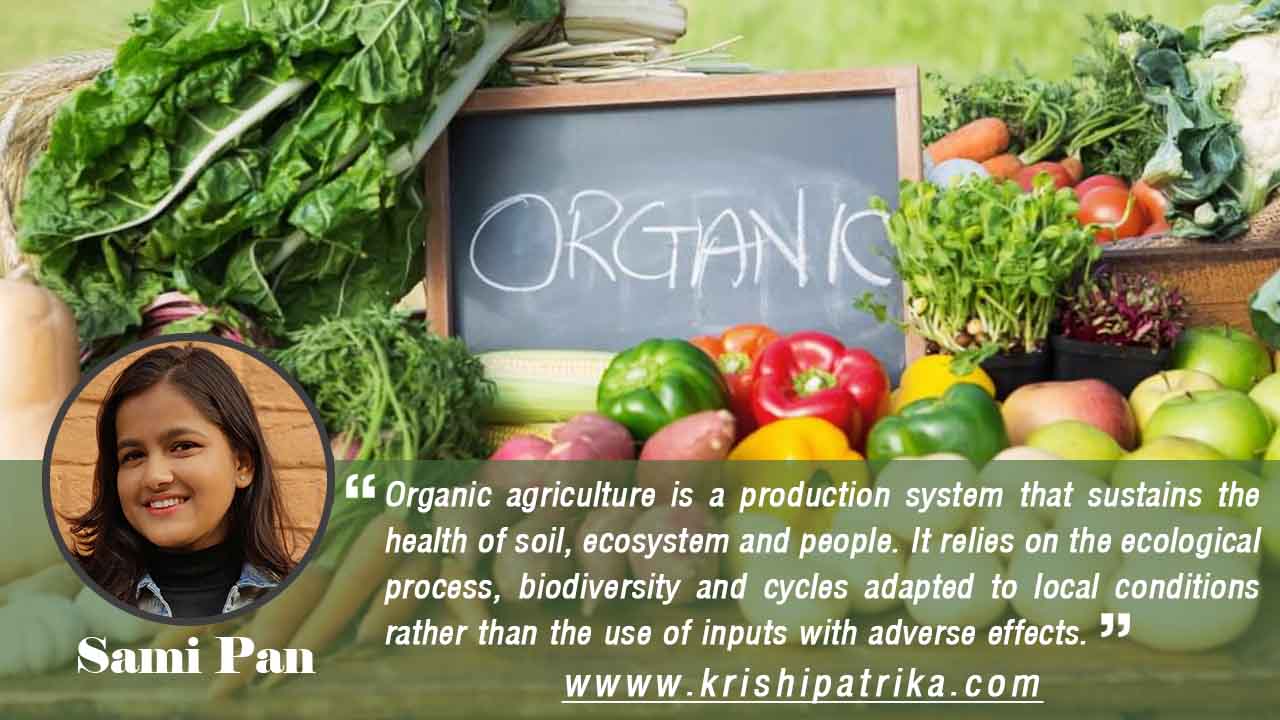
Nepal is an agricultural country having 66% of people directly engaged in agricultural activities but still, the production isn’t sufficient to provide adequate food for all. People are striving hard to grow more crops from limited land resulting in the use of chemicals for pest control, fertilization etc. ignoring the harmful effects it results on health and environment. In this condition, for the enhancement of the health of soil, planet, animal, human and planet as whole organic agriculture can be the best approach.
Organic agriculture is a production system that sustains the health of soil, ecosystem and people. It relies on the ecological process, biodiversity and cycles adapted to local conditions rather than the use of inputs with adverse effects. In simpler words, utilizing natural materials in agriculture and prohibiting the use of any chemicals or inorganic inputs is organic agriculture. It is one of the approaches to sustainable agriculture. The organic farming system promotes the cultivation of underexploited local crops, reduce pesticide pollution, supplies safe food, protects environment thus maintaining sustainability in agriculture. The haphazard use of chemicals without being aware of proper dose, safe application procedure and the waiting period can certainly influence the human health and overall disruption of the environment.
However, the organic farming system hasn’t still paced the way it should be in Nepal. Although, it first appeared as one of the priority sectors in Nepalese agriculture in 10th five years plan, only about 20% of the food produced here is organic. The rapid agricultural intensification, high input technology, use of high yielding hybrid varieties have fascinated people towards the use of agrochemicals. Unavailability of bio-fertilizers in the local market, lack of proper plans and policies by government, the misconception of people regarding organic agriculture that it may not ensure food security, lack of proper awareness and high cost of production are the major challenges in the organic farming system. Due to the complicated time-consuming certification process, organic products aren’t getting recognition as organic. In addition to that, it is a labour-intensive farming system. In urban areas where there is a scarcity of labour, it can’t be taken as an appropriate option. Still, some farmers aren’t confident in organic farming because of some pests and disease which are hard to control without chemical pesticides. Thus the adoption of organic farming is quite slow.
Although there are various challenges in this field, the COVID -19 scenario can be a good opportunity for promoting organic agriculture in Nepal. Shortage of agrochemicals due to this lockdown with many labour migrants returning to the country, there is an opportunity. Everyone is encouraged to utilize this for creating a healthy lifestyle and a healthy environment.









